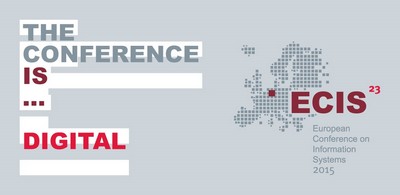DOI
10.18151/7217526
Abstract
The growing success of social media led to a strong presence of social information such as customer product reviews and product ratings in electronic markets. While this information helps consumers to better assess the quality of goods before purchase, its impact on consumer decision-making also incentivizes sellers to game the system by creating fake data in favor of specific goods in order to deliberately mislead consumers. As a consequence, consumers could make suboptimal choices or could choose to disregard social information altogether. In this exploratory study, we assess the effects non-genuine social information has on the consumer’s decision-making in the context of reward-based crowdfunding. Specifically, we capture unnatural peaks in the number of Facebook Likes that a specific crowdfunding campaign receives on the platforms Kickstarter and Indiegogo and observe subsequent campaign performance. Our results show that fake Facebook Likes have a very short-term positive effect on the number of backers participating in the respective crowdfunding campaign. However, this peak in participation is then followed by a period in which participation is lower than prior to the existence of the non-genuine social information. We further discuss circumstances that foster this artificial manipulation of quality signals.
Recommended Citation
Wessel, Michael; Thies, Ferdinand; and Benlian, Alexander, "A Lie Never Lives to be Old: The Effects of Fake Social Information on Consumer Decision-Making in Crowdfunding" (2015). ECIS 2015 Completed Research Papers. Paper 201.
ISBN 978-3-00-050284-2
https://aisel.aisnet.org/ecis2015_cr/201


